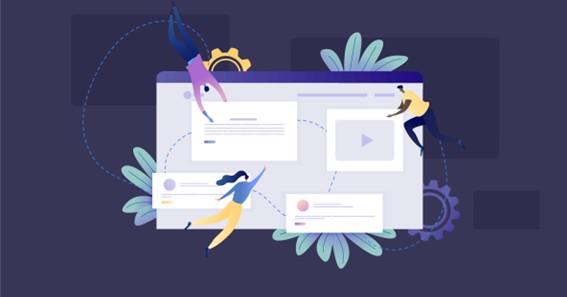HR software is a digital solution that combines a number of systems and procedures to manage and optimize ongoing HR operations as well as the overall HR objectives of a specific firm. Your organization can best manage its talent, ensuring employee satisfaction and boosting productivity, by choosing an up-to-date HR software solution that integrates seamlessly with your business operations.
There are a plethora of ways in which a business may gain from using software rather than inaccurate and chaotic paper data. HR software always develops new ways to streamline and optimize human resources administration. Using historical data and HR software, it is possible to estimate the number of personnel needed at particular points in the year so that hiring resources can be distributed and mobilized effectively.
Click here – How To Get Free Money On Sign Up — 4 Apps To Help You Get Extra Cash Today
On-Premises HR Software
This type of HR software runs on client machines or systems and is utilized by a small network within a business. The program can only be accessed and used on systems on which it has been installed. Although less expensive and safer than cloud-based software, most businesses find it difficult to upgrade.
Cloud-Based HR Software
Logins can be used to access cloud-based HR software on devices with internet connectivity, enhancing flexibility and mobility. If self-service alternatives are available, this type of access can give workers in any business access to their own personal information and the ability to make changes. It is especially practical for mobile workforces.
Types of HR Software
HR software has variety of forms and helps firms accomplish a range of objectives. Some of them are listed below.
ATS, or Applicant Tracking System
An ATS is HR recruiting software that streamlines the hiring process for an enterprise. It often handles duties including managing applicant data storage, publishing job opportunities to numerous job boards, and reviewing applications to see whether they would be a match for open positions.
Performance Management:
An HR professional, a manager, and an employee can all use a performance management platform to assess a worker’s abilities, set performance objectives, and monitor advancements.
Onboarding:
The process of integrating new hires into a company can be streamlined and tracked with onboarding software. To guarantee that the HR staff gives new hires an effective onboarding experience, it frequently consists of electronic signatures, training monitoring, employee questionnaires, and other automated processes.
Human Resources Information System (HRIS):
An HRIS performs a variety of HR tasks, including application tracking, employee data storage, handling payroll and benefits, and regulatory and legal compliance. It is a platform for increasing individual and group involvement in the workplace. Employee engagement can be attained through coaching, analytics, feedback, and daily work priorities.
Advantages of HR Software
A company or an individual using HR software can get a lot of benefits out of it. Businesses that use an all-inclusive HR software solution may experience a number of advantages in many parts of the business. Processes may be simplified, and data pertaining to various HR components that were compartmentalized prior to the implementation of a comprehensive system may be easier to cross-reference.
- One of the main advantages of using human resource management solutions is that less time is spent on routine, unimportant administrative activities.
- The benefits of HR software may vary substantially depending on the type of software selected and the specifics of the company.
- Improved benefit monitoring data gives a firm more negotiating power when negotiating prices with carriers, especially given the rising cost of health insurance.
- The biggest common benefit is the labour time saved on menial administrative tasks. This time could be better spent on tasks that would benefit the company more financially.
- Human resources professionals have access to several strategies to save money using HR management tools without sacrificing the employee experience.
- Additionally, gamification features promote and make it simple for workers to adopt good lifestyle habits in order to obtain prizes and premium discounts, all of which are advantageous to the company.
- Beyond these broad advantages, businesses could also have advantages related to the particular software or module selections used, such as an improvement in succession planning and employee development following the implementation of a strong learning management system.
- Due to the reduced usage of paper, paper clips, ink, and related materials, there may also be space and financial savings.
Other significant advantages of HR software include improved processes, improved document and employee data organization, decreased errors, ongoing constructive feedback, better and more accurate analytics assurance that businesses remain in compliance with federal regulations, and advancements in succession planning.
Click here – 6 essential tips for effective writing





